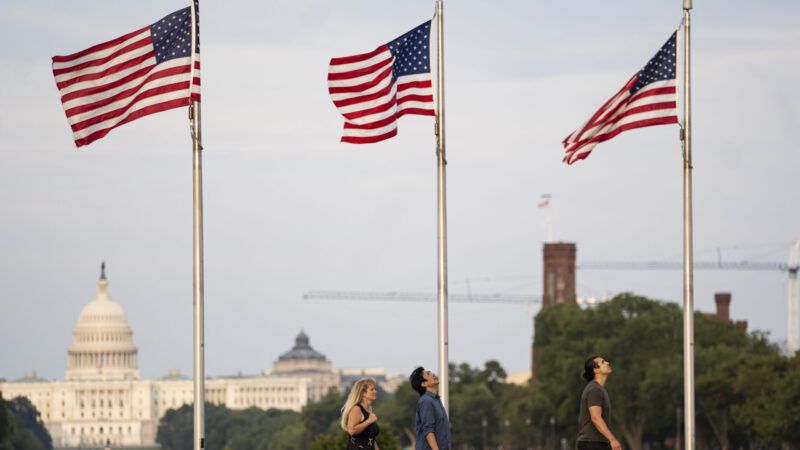If Government Is Good at One Thing, It's Making a Crisis Worse
The same institution that's unable to run the Postal Service or Amtrak orchestrated our invasion and withdrawal of Afghanistan.

Another government failure, another outrage. This time the scandal is brought on by the less-than-orderly withdrawal of U.S. troops from Afghanistan and the realization that 20 years of military presence in the country achieved nothing but death and chaos. Observing another instance of large-scale mismanagement, I can't help being surprised that anyone is still surprised.
One needn't be a foreign policy expert to recognize that something in Afghanistan went terribly wrong. While many will blame the Biden administration for a fiasco that will have horrifying humanitarian consequences for the Afghan people, the failure also belongs to those who made the decision to go and remain there for two decades. These American officials argued that a continuing U.S. military presence there was important for achieving several goals, like training the Afghan army to resist the Taliban. Yet, today, the almost-immediate collapse of the U.S.-backed Afghan government makes it clear that whatever our strategy was, it failed.
Unfortunately, it's unlikely that those who believed in nation building in the first place will realize from this dreadful episode that it never works as well as planned, even though the tragic scenario now unfolding before our eyes isn't the first U.S. government foreign policy disaster. And it won't be the last. People never seem to learn. Making matters worse is the fact that this sad state of affairs isn't limited to foreign policy. It exists everywhere and throughout all levels of federal, state, and local government.
During the pandemic, for instance, I was baffled to see Congress put the Small Business Administration (SBA) in charge of dispensing unprecedented disaster relief. This agency has a disastrous record of extending the suffering of small business owners after disasters like Hurricane Katrina. Having written extensively on that issue, I knew that this time around would be no different. It wasn't.
A few weeks ago, the Wall Street Journal published an investigative piece about the performance of the SBA's COVID-19 disaster loan program. The conclusion is that it was terrible. The report is packed full of examples of the ordeal that small business owners went through, many of which were carbon copies of stories that I reported about during other disasters. One of the recipients of the loans described dealing with the SBA: The agency "puts you in a state of confusion and doesn't allow you to focus on what you should be doing, and that is to continue to rebuild your business after a pandemic."
The article also includes an admission by a former SBA regional administrator who helped with the agency's response. "On the disaster side," he admitted, "we did a terrible job." However, it doesn't quite matter, as there will be no consequences for the agency. And the next time around, whether for a pandemic or a hurricane, the SBA will be called to the front lines yet again. And when it fails again, people will be outraged and wonder how this could have happened again.
I'm picking on the SBA, but the same criticism applies to other agencies and many other government efforts. Remember the flaw-filled rollout of the Obama-era Healthcare.gov? Remember the invasion of Iraq and discovering that there weren't weapons of mass destruction there after all? Remember former President Donald Trump's trade war, which was supposed to bring jobs back to the United States?
Books will be written for years to come about the utter failure of the Centers for Disease Control and Prevention (CDC) to perform the most basic of responsibilities—preparing for a COVID-19-like pandemic. Authors will comment on all the CDC's well-documented fiascoes, like the unwillingness to use existing COVID-19 tests and the failure to recommend that schools be opened like they are, successfully, in many other countries. Similar books will be written about the Food and Drug Administration's poor handling of the crisis. The best of these books will even examine the agencies' pasts and note that the recent mismanagements are just more of the same.
Unfortunately, the incentives within government are such that this pattern won't change. After all, the same institution that's unable to run the Postal Service or Amtrak without being in the red orchestrated the withdrawal from Afghanistan and our previous stay there for 20 years. The only thing that will make a difference is if we, the American people, start demanding accountability and reform. That may include the termination of a few—or perhaps many—agencies and programs.
COPYRIGHT 2021 CREATORS.COM


Show Comments (113)